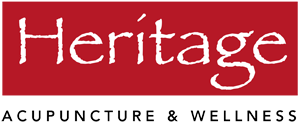For pain increasing in cold weather,
Chinese medicine offers an explanation and relief

Does the cold air of winter flare up your joint pain? Do you find your neck, back or knees ache more in winter weather? In Traditional Chinese Medicine (TCM) terms, this very real medical phenomenon is called bi syndrome. Bi syndrome relates to Western diagnoses such as arthritis and fibromyalgia, although the TCM condition is much more specific.
There are, for example, different types of bi syndrome depending on symptom presentation. Although all people with “arthritis” have pain, some may also have swollen joints, while others feel worse with cold and still others have hot, swollen joints. Bi syndrome, then can be rooted in damp, cold or heat. Cold, however, is the most common root cause of both bi syndrome and pain in general.
Why is cold so detrimental to the body? Cold hurts because it contracts an area, limiting blood flow and rendering muscles, tendons and ligaments stiff and inflexible. Cold also damages your body’s Yang energy, which empowers warmth, energy and movement in the body. Without Yang, your blood turns cold and stagnant. What happens when the blood is cold and stagnant? You guessed it – pain!
So how can you relieve cold weather pain? Acupuncture, of course, is an excellent way to dissolve stagnation, strengthen blood and open the channels that supply nourishment to every bodily cell and tissue. Moxibustion, or the external application of an herb called mugwort, also warms the body and promotes circulation. An acupuncturist uses moxibustion or “moxa” by burning prepared mugwort and holding the moxa stick over specific acupuncture points.
Internal Chinese medicine also contains an abundance of herbs to treat pain, specifically cold-related pain. Chinese herbs are among the safest forms of internal medicine. Many highly effective herbs are common household spices, such as ginger and cinnamon.
What can you do at home to build up your defenses to cold-related pain? A lot! Start by keeping warm. When the thermostat drops, keep your feet warm with socks inside and outside the home. Wearing weather-appropriate clothing (scarves are great!) outdoors protects your body from cold invasions – which frequently use wind as a vehicle. In TCM terms, it is possible to for cold to enter the body through the pores and settle into soft tissue and joints. Add a few drops of warming essential oils to your bath water or massage oil to help chase away cold and promote healthy circulation (frankincense, myrrh and ginger are good examples).
Your diet also can exacerbate or alleviate pain. Ingesting cold foods, including icy drinks and raw foods, makes cold-related pain worse. Focus on foods and herbs that warm the body and promote circulation, such as chives, oregano, cinnamon, eggplant, garlic, ginger and leeks.
Other essential allies in pain prevention are exercise and stretching. A gentle hatha yoga practice goes a long way in releasing stagnation in the body and promoting blood flow. To move circulation and energy in the body, it’s not necessary to exercise vigorously. Even a moderate walk (of at least 30 minutes in duration, at least 3 times per week) is excellent medicine for soft tissue and the circulatory system.
How can we help? Heritage Acupuncture & Wellness offers acupuncture, Chinese herbology, customized stretching routines, postural assessment and correction and private yoga instruction. Please call 919-685-2938 or email at info@heritageacupuncture.com if you’d like our help with pain relief.
Copyright © 2015, Heritage Acupucture & Wellness. All rights reserved.
